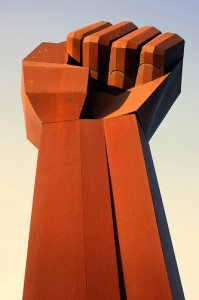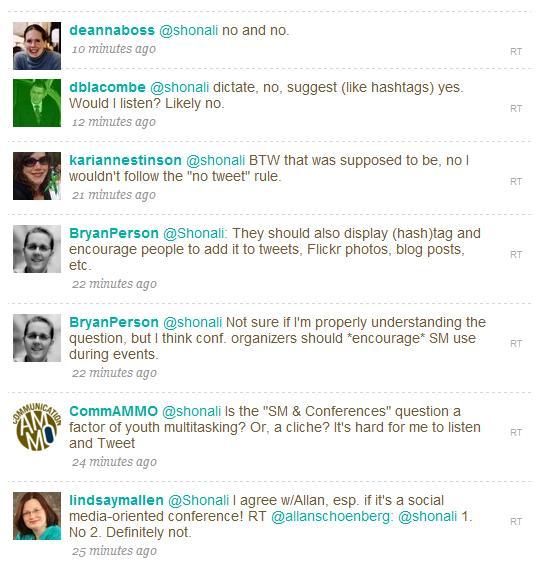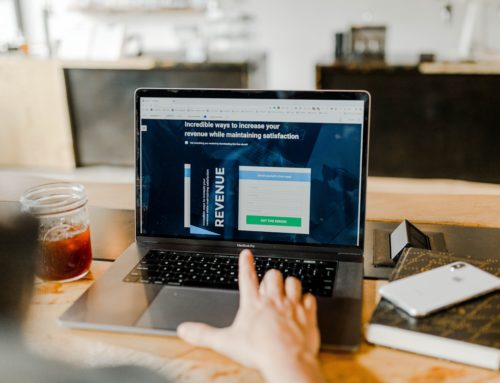 My friend Katie Paine, who’s at Bulldog Reporter’s PR Measurement Summit 2009 in New York as I type this (and which I’m not attending), sent me an interesting note via Skype. Apparently the conference notebook contains the following reminder to “Please Use Social Media Courteously during the PR Measurement Summit”:
My friend Katie Paine, who’s at Bulldog Reporter’s PR Measurement Summit 2009 in New York as I type this (and which I’m not attending), sent me an interesting note via Skype. Apparently the conference notebook contains the following reminder to “Please Use Social Media Courteously during the PR Measurement Summit”:
Social media create powerful opportunities for communicating among a network of colleagues — which can be used constructively but can also lead to awkward and unpleasant consequences when used ill-advisedly. During recent conferences in a variety of industries, for example, participants have provided real time commentaries of the events that have precipitated misunderstandings, embarrassment and even anger. For this reason we offer the following courtesy guidelines for participants in this conference:
1. Avoid participating in social media conversations during presentations. It’s simply impossible to concentrate fully on speakers analyses and advice while participating in online conversations or creating social media commentary.
2. Avoid over-simplifying a speaker’s comments or position in any social media commentary. Most speakers offer a complex and nuanced perspective which cannot fairly be distilled into 140 characters or even 1,400 characters.
3. Keep commentary on a professional level and avoid commentary on personal issues relating to participants.
Again – I’m not at the conference, and typing what Katie sent me as printed in the handbook, so if there are any typos, they’re Katie’s and mine.
I couldn’t help but think, though: for “courtesy guidelines,” aren’t there an awful lot of implied dont’s around?
I have certainly come across speakers who prefer attendees not to tweet (since that’s the most prevalent way of participating in SM at least that I know of) during their presentations. Granted, they spent a lot of time (one would hope) preparing and no one likes to think their audience is not paying attention. But if they’re going to decide for me how much attention I can or cannot pay while attending a presentation – well, I’m going to be thinking of spending my money elsewhere next time around.
Avoid over-simplifying a speaker’s comment? Their “complex and nuanced” perspectives can’t be distilled into “140 or even 1,400 characters”? Good grief. What else do PR practitioners do but distill “complex and nuanced” perspectives into every day speak?
Should commentary be kept to a professional level? Of course it should be. But one would hope the majority of folks who attend such conferences already understand this. It’s called, er, being adult.
I don’t know if Bulldog Reporter provided attendees with a conference hashtag (I assume most attendees are following their guidelines and NOT participating in SM), but surely printing that in the handbook would have been useful as a way to track these conversations and, what’s more, open the door to a whole new potential audience.
I’ve lost track of the number of conferences I was unable to attend but which I was still able to learn from simply by tracking the hashtags. And as far as not being able to pay attention to speakers if we’re using SM: well, we work in PR. Multi-tasking is usually our middle name (or one of them). And most of us are smart enough to stop tweeting or Skype-ing if we’re losing the presentation by doing so.
I threw out a quick poll on Twitter: 1) Do you think conference organizers should dictate SM use (tweets, etc.) during conferences? 2) Would you listen?
Here’s some of what I got back:
I’m sure Bulldog Reporter had the best intentions in mind while drafting its guidelines. I just wish it didn’t come across quite so much as a way to control – or eliminate – the incredibly multidimensional facet that SM can bring to such conferences. Nineteen Eighty-Four was a long time ago.
What do you think?




![[EVENT]: PR Hacks for Small Biz (online)](https://shonaliburke.com/wp-content/uploads/2021/06/FB-Ad-1200x800-01-01-01-Copy-500x383.jpeg)





Very interesting idea. I like “guidelines” or “suggestions”, but telling people to NOT participate in social media is a bit overboard in my opinion. For a lot of people that’s part of attending a conference these days. It enriches the experience through an added layer of participation and engagement.
Sometimes people go to far so I do agree with asking people to be adult, professional and courteous. That should be obvious, but some people just don’t get it or get off on causing conflict.
http://twitter.com/franswaa
Thanks for your input, Frank!
Shonali and all: When you go to a theater, they ask you to turn off your cellphone as a courtesy. They don’t dictate that you do it, they ask you to use good sense and consideration. Bulldog Reporter’s social media guidelines were just that—guidelines. We had learned of other conferences in which denigrating personal (outright rude) comments were being made about panelists and another in which snide (unkind, superficial and premature) comments were being made about speakers’ positions even as the speakers were trying to clarify them. Some speakers got very angry, friendships were lost and some tweeters’ reputations were damaged because of it. Read our guidelines again. Bulldog Reporter never tried to dictate social media behavior. We only suggested that people consider what could go wrong, and we suggested guidelines that might prevent this. We realize that with social media, just as in movie theaters, some people are determined to be bozos, and there’s little that can be done about it.
Thanks for your comment, Jim. I don’t think anyone minds guidelines – and clearly, since you gave attendees a hashtag to use, as Gail and Shashi pointed out, you intended them to use it. What I was commenting on was the way they came across. If you’re telling people it’s “impossible” for them to concentrate or what can/cannot be distilled into 140 characters… well, they’re going to try to prove you wrong, bozos or not. Sometimes it’s not what you say, but how you say it.
Again, thanks for commenting. I really appreciate having Bulldog’s perspective.
Thanks, all, for your comments!
Shonali, this post really ruffles my feathers! Not you, of course, but the topic. I’m typically a “rule follower” but can say that if I was at this conference, it would be one that I’d have to be a “rule breaker.” I was, however, at the Bulldog Reporter Media Relations summit a couple months ago in NYC and tweeted feverishly – a lot of us did – and perhaps that’s where this new “rule” came about. I found that tweeting allowed me to follow others at the conference and meet/make new friends while there.
Let’s hope that Bulldog DOES get SM and is simply trying to protect their speakers intellectual property and not trying to challenge freedom of speech.
Thanks for a thought-provoking post!
Hopefully the comfort level around colleagues tweeting/liveblogging during conferences will get there where it will be status quo…let’s hope soon! Last week I attended a small conference expecting to live blog about the speakers, but found I was the only one with a laptop! Half way through I put my laptop away, giving in to the “peer pressure” of stares, looks…mabye I need to grow some guts? Or people need to become accustomed to multitasking attendees. Anyway, my hope is that the culture at conferences adapts to enable communication exchange – it’s harder and harder to attend conferences, and social media vehicles are a great way to get the word out. What a hot topic, Shonali! (PS…I never saw the guidelines today…guess that’s good…)
But aren’t people just fundamentally marketing themselves when they tweet from a conference, establishing themselves among their followers as an intellectual pushpin for that event or subject? (Not that I think this is a bad thing.) I would imagine it would be impossible for some people to willingly give that up at this point.
I for one am not tweeting the conference much at all, I feel like I’ve been told to shut up, so I will — for now
Hi Shonali,
Good points in the post. I am at the Bulldog conference and I met quite a few people Tweeting and they even called my table the Cool ( and cold temperature wise) Twitter table .I think the reminder was meant to be a guideline as the organizers announced the hashtag twice #meas. I think Gail mentioned that too earlier.
I thinkby encouraging a simultaneous online interaction it helps spread the audience further.
Cheers !
Shashi
Sorry for the late response, Shashi, but thanks so much for your input. It was great to see the comments from folks actually at #meas.
(Warning: here comes the pragmatist to rain on the live-tweeting parade of support.)
I’ve already mentioned/tweeted you links to a couple of items that offer some other perspectives (i.e., cautionary tales), including Ira Basen’s http://www.cbc.ca article, Rules of engagement for the social media set and Doug Lacombe’s guest post on the CPRS On The Edge blog, Live tweeting; bird-brained or brilliant?
At the recent conference of the Canadian Public Relations Society, On The Edge, I saw very little live-tweeting. And I certainly wasn’t. Why? Probably because it was announced, in advance, as well as at the start of each session, that conference volunteers were live-blogging using CoverItLive–plug for a very useful and cool Canuck company/platform, that is used at conferences around the world. Generally sessions had a minimum of two live bloggers.
This meant there was less need for:
1) delegates to divide their attention (and potentially bother their neighbours) between listening and tweeting; and
2) both delegates and conference lurkers to be dependant upon tweets for “notes” or impressions. (I’ve gone back to refer to the archived live blogs on several occasions.)
I, for one, find other people live-tweeting a distraction. The evening before I left for my Vancouver conference, I was sitting behind a woman at Rahaf Harfoush’s presentation (re: her Yes We Did book launch) who kept yanking out her BlackBerry, checking what her “friends” in the audience were tweeting (because I could see her scrolling), then adding her own tweets. She’d then put her BB back in her bag…until the next impulse to start again. I disliked the fact that her lit device took even the slightest bit of attention from an incredibly intelligent, articulate and interesting speaker.
I’m not telling people who insist on live tweeting they can’t. But I do think the preferences of the speakers should be taken into account.
I’m also stating that I think individuals who did not pay to attend a session (i.e., who instead want to experience it vicariously via live-tweeting) aren’t really in a viable position to argue for its necessity or feasibility. Third-party providers don’t need to subscribe to your “free” economy.
Nice to see your new post spark off an interesting conversation, friend.
LOL, Judy, I was just going to post the links you tweeted but you beat me to it. You are SHARP! Thank YOU for enriching the discussion.
All this prior restraint smacks of reaction to something specific. One of the speakers or someone at Bulldog must have been unhappy with the tweets that went on at a previous conference.
I bet they had something in mind when they said: “During recent conferences in a variety of industries, for example, participants have provided real time commentaries of the events that have precipitated misunderstandings, embarrassment and even anger.”
Anyone out there know what they are referring to? This just makes we want to research it and find out–not refrain from twittering. (I’m not there BTW)
Great comments, all. Thank you!
Amazing.
I must agree with Beth in thinking the intent for guidelines was to protect speakers, but in that case…should the speakers not be informed and aware of socmed conference coverage before taking the gig? Live coverage is just part of the game…and it is weeding out those who should not have another speaking gig. kudos to those speakers who go back in stream to find out and respond to what is said about them and presentation. We are in a constant state of learning and interaction.
I’d bet money that, somewhere at the bottom of this, there is a person directing policy who does not tweet and has little to do with SM reacting to second hand information. Just a guess.
I use tweeting at conferences as a way to keep notes. (I’m saving paper!) As noted above by Gail Nelson and Kelly Groehler, Bulldog is not enforcing this policy. I wrote a blog post a few weeks ago on the advantages of tweeting at conferences. I had some friends comment that it has made them more aware of the impact of their presentations.
Shonali, glad to see the update from Gail on the Bulldog conference. I don’t think Bulldog’s ‘guidelines’ come from not getting social media or even trying to take away an attendees ‘freedom of speech…’
I am thinking it has more to do with protecting speakers and not having speakers get ticked off. So from that view point, I think conference organizers and speakers need to learn what it means to present at conferences today where people are using social media tools. What are the best practices? What works, etc.
They also need to learn how to handle it when something is taken out of context. That happened to me at a recent O’Reilly conference. Someone took out of context what I said about measuring social media and it created a short-lived blip on Twitter. I corrected it and everyone moved along merrily.
Until everyone is comfortable with the social media world we live in, we’ll continue to see more ‘guidelines’ like the one from Bulldog (which people seem to be ignoring anyway).
Beth Harte
Community Manager, MarketingProfs
@bethharte
The third guideline seems reasonable, but the other two are nuts. I particularly like the second one for its inanity: I mean, c’mon. Doesn’t the idea of dictating/”censoring” SM use defeat the purpose of the medium? Of course take-home points can be distilled … and organizers should take the opportunity to review to see if people are taking away what the organizers think they need to :)
I’m at #meas and found the guidelines to be strange. They should be glad that people find the content and speakers at their conferences interesting enough to talk about.
I had no idea there were SM guidelines for today. Geez, I was tweeting while I was on the stage for our panel discussion; even mentioned it when I started talking. Bulldog asked me back for a future event, so I’m guessing they weren’t *that* stringent.
Thanks, all, for your comments. As Gail just informed me, the Bulldog Reporter hashtag is #meas, and it’s good to know they have one. My post originated from their “guidelines” and what was or was not “ok” in terms of dictating SM use during a conference – just in case anyone wasn’t clear about that. I really appreciate your feedback – thank you again!
Good post based on the information you have, Shonali, but here’s a reality check. I am at the Bulldog Media Measurement Conference and am tweeting live. The #meas hashtag was secured and provided by Bulldog’s conference staff.
Thanks, Gail, good to know that. So I guess you’re not following their guidelines, then. ;-)
I don’t think the organizers should engage in prior restraint.
For myself, I’m not sanguine about trying to both listen to the speaker and write about the presentation — it’s a matter of my style and preference. It may also be a function of my advancing years, though I don’t like to think that I’m incapable of multitasking.
Will organizers also stop news media members from taking notes? From sending pieces of stories up to their pub’s website during the show? Is this mostly about Twitter, but not blogs or even group e-mails?
It’s true that distilling complex topics into understandable language is what our profession is about. I’d hope that the course of commenting on Twitter (especially) would be constructive and courteous. But sometimes, baser instincts rule, in particular when anonymity is on tap. Most of our colleagues are Tweeting in the clear…at least, as far as we know.
Bulldog is also missing out on the great publicity that a conference gets when people are tweeting about it. I’m now considering attendance at a number of conferences next year because of the info I was able to track on Twitter.
In addition, SM tools are not really much different than what’s discussed at the cocktail reception after the presentations. If anything the use of Twitter during a presentation increases one’s awareness of the presenter, much like taking notes helps you focus on the information being delivered. In my mind, the only reason a speaker would discourage the use of SM tools during their presentation is if he or she is worried about the feedback. If so, you shouldn’t be presenting.
Three words: Freedom of speech.
Any company/organization/person/politician/conference/Twitterer/etc. who starts trying to define that immediately loses credibility with this gal.